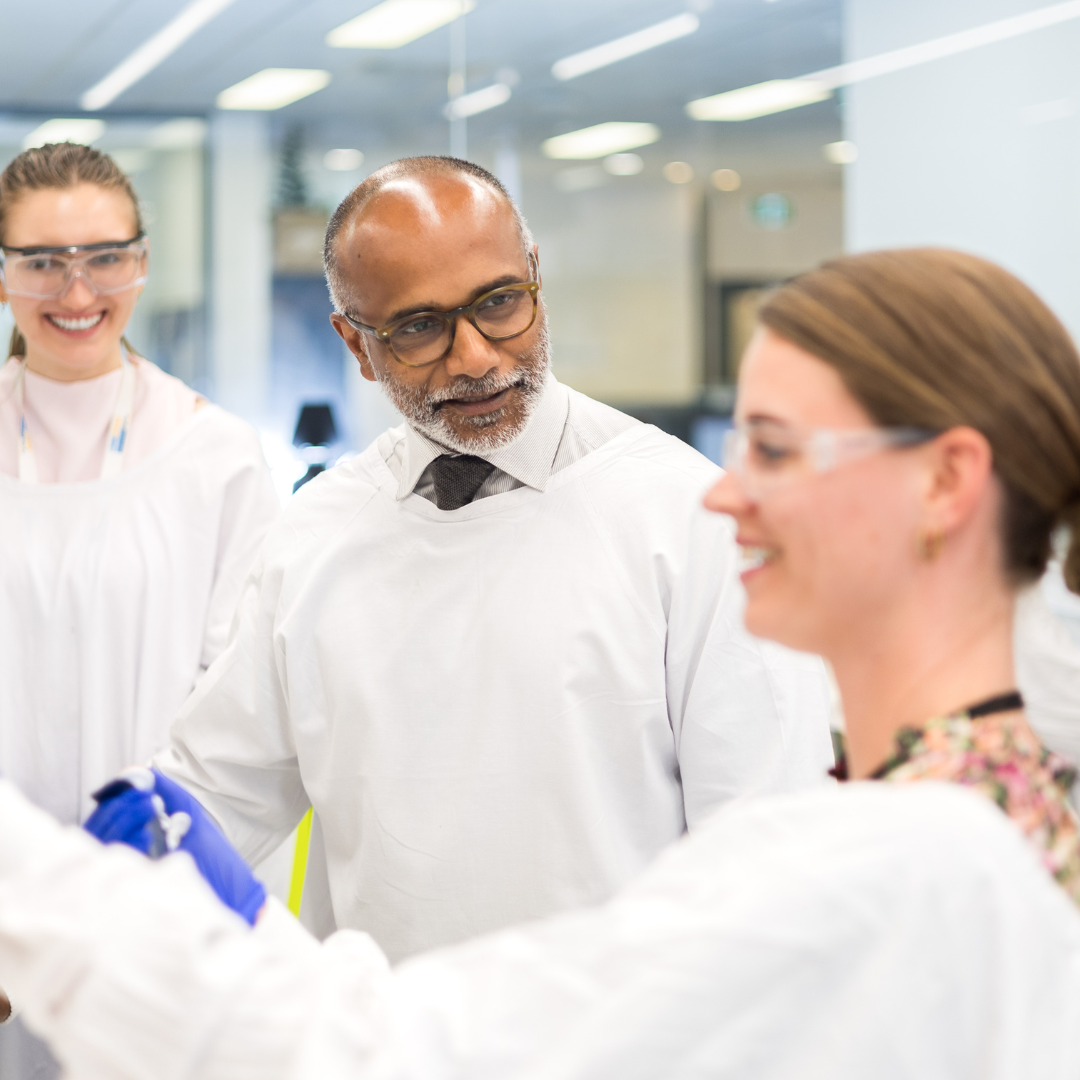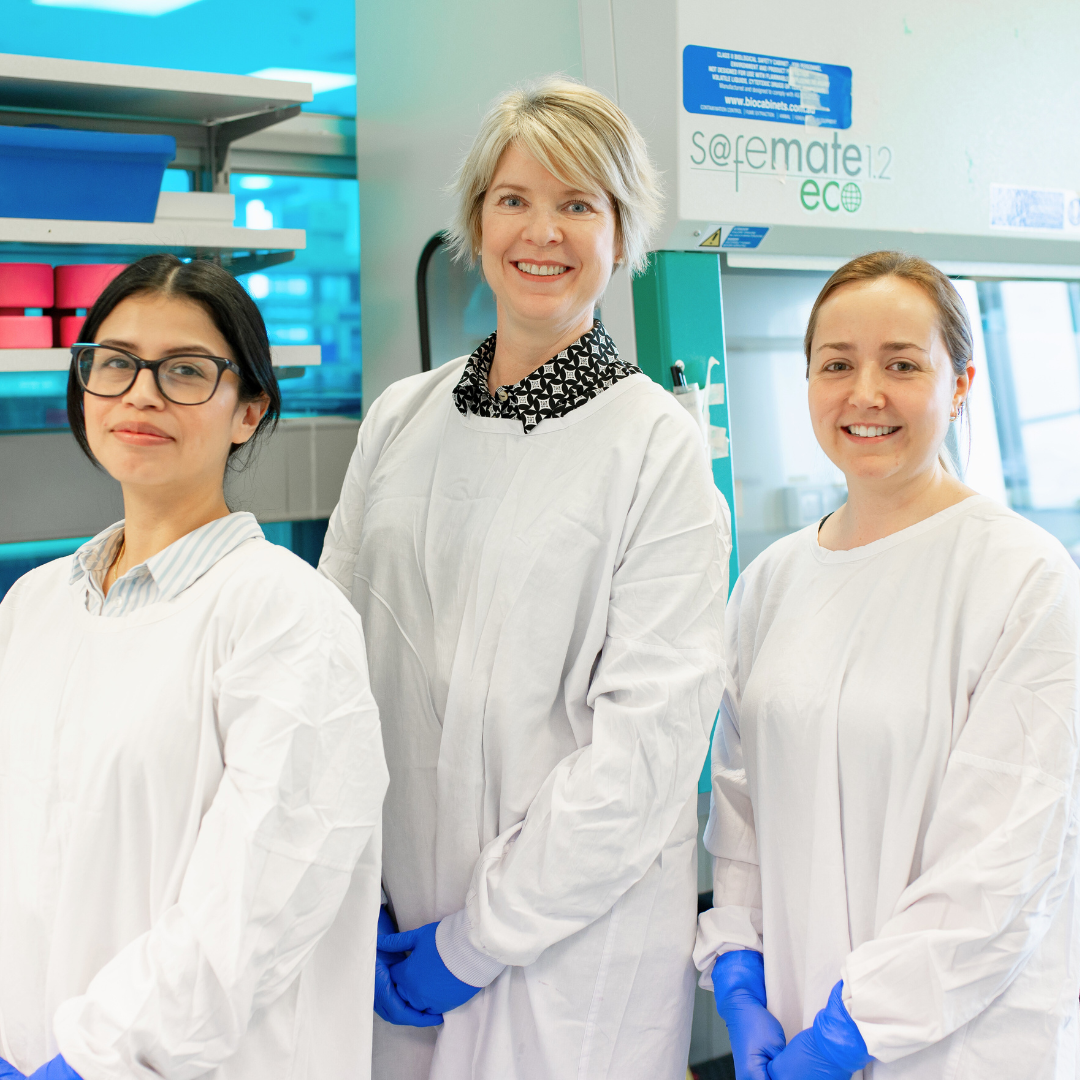Strengthening the immune system after a transplant to prevent infections
Enhanced T-cell reconstitution to reduce morbidity and mortality from opportunistic infections following haematopoietic stem cell transplantation.

Meet the people on the project
The challenge
Haematopoietic stem cell transplantation (HSCT) is a proven cell-based treatment that offers the potential for cure for more than 10,000 children, teenagers, and young adults with blood cancer worldwide each year. However, one of the most significant risks after this procedure, especially in the first 100 days, is infection because the patient’s immune system is very weak, and it takes months for essential immune cells to recover.
After an HSCT, creating most blood cells is straightforward, but T-cell production is more difficult because only a few special blood stem cells travel from the bone marrow to the thymus, where they become T-cells - a process that remains poorly understood and for which there are currently no effective treatments to speed up recovery. Some immune cells, especially neutrophils - part of the body's first line of defence - are usually restored within three to four weeks, and while doctors can use a medication to help neutrophils recover faster, there is no similar treatment to speed up the recovery of the immune system's T-cells, which play a crucial role in fighting infections.
Because T-cells take longer to recover, children who have had a transplant are at high risk for serious infections. Problems with T-cell recovery can cause severe viral infections (about 20-30% of patients), fungal infections (10-15% of patients), and an ongoing risk of bacterial infections.
To help prevent these infections, patients are given antibiotics, antiviral drugs, and antifungal medications, as well as vaccines. Even with these protections, some viral and fungal infections can still be life-threatening, with death rates up to 80%, and vaccines often don’t work well after a transplant. This highlights the urgent need for improved therapies to help T-cells recover quickly and effectively.
The research
Using advanced technology that allows close monitoring of how transplanted stem cells develop and produce different blood cells, a team of researchers at the Peter MacCallum Cancer Centre and University of Melbourne, led by Prof Mark Dawson, has found new ways to support faster recovery of T-cells after an HSCT.
The team has discovered and tested in mice a previously uncharacterised gene that can help T-cells recover more quickly after a transplant. Their main goal now is to gather the evidence needed to turn this discovery into a new cell therapy for children with cancer, so that patients have fewer problems from infections and other risks related to slow immune recovery after an HSCT.
Specifically, the project aims to:
1. Develop a safe new treatment that uses mRNA technology to help stem cells express this unique gene and rapidly restore the immune system.
2. Discover exactly how this gene helps stem cells turn into T-cells.
Ultimately, the project seeks to create and test a new therapy that speeds up T-cell recovery, lowering the chance of life-threatening infections and making the procedure safer overall.
The research team comprises experts in blood and immune systems, mRNA therapy, specialist doctors who manage stem cell transplants for young people, and leaders in developing new cell therapies.
The impact
If successful, this project is expected to deliver robust pre-clinical evidence showing that the new cellular therapy can reliably speed up T-cell recovery after HSCT. By restoring T-cells more quickly, the therapy should help protect vulnerable patients from life-threatening infections during the most critical period following their transplant. This could lead to a significant reduction in severe viral, bacterial, and fungal complications, lowering hospitalisation rates and potentially saving lives, particularly for children and young adults who are most at risk.
Beyond demonstrating safety and effectiveness in laboratory models, the work will produce the evidence base required to advance this innovative therapy into clinical trials.
Ultimately, the goal is to translate these scientific findings into a readily available treatment that can be adopted in transplant units. Successful outcomes from this research will help address current gaps in post-transplant care and improve patient recovery and long-term health after an HSCT.
Children's Cancer CoLab Funding Information
Grant/s Awarded (Total): $868,000
Project Timeline: August 2025 – July 2027
Impact Programs: Safer Therapies
Scientific Review: Children’s Cancer CoLab Scientific Advisory Committee
Lead Institution: Peter MacCallum Cancer Centre
Collaborating Institutions: University of Melbourne, Royal Children’s Hospital and Royal Melbourne Hospital
Lead Researcher: Prof Mark Dawson
Contact us to find out more about this project
Articles featuring
Strengthening the immune system after a transplant to prevent infections
Read our latest news
More Funded Projects
Grant Funding
Our program funding is allocated through a competitive process underpinned by robust expert review. We adopt scientific rigour to evaluate each proposal’s potential for impact and alignment with identified childhood cancer research and care priorities.





